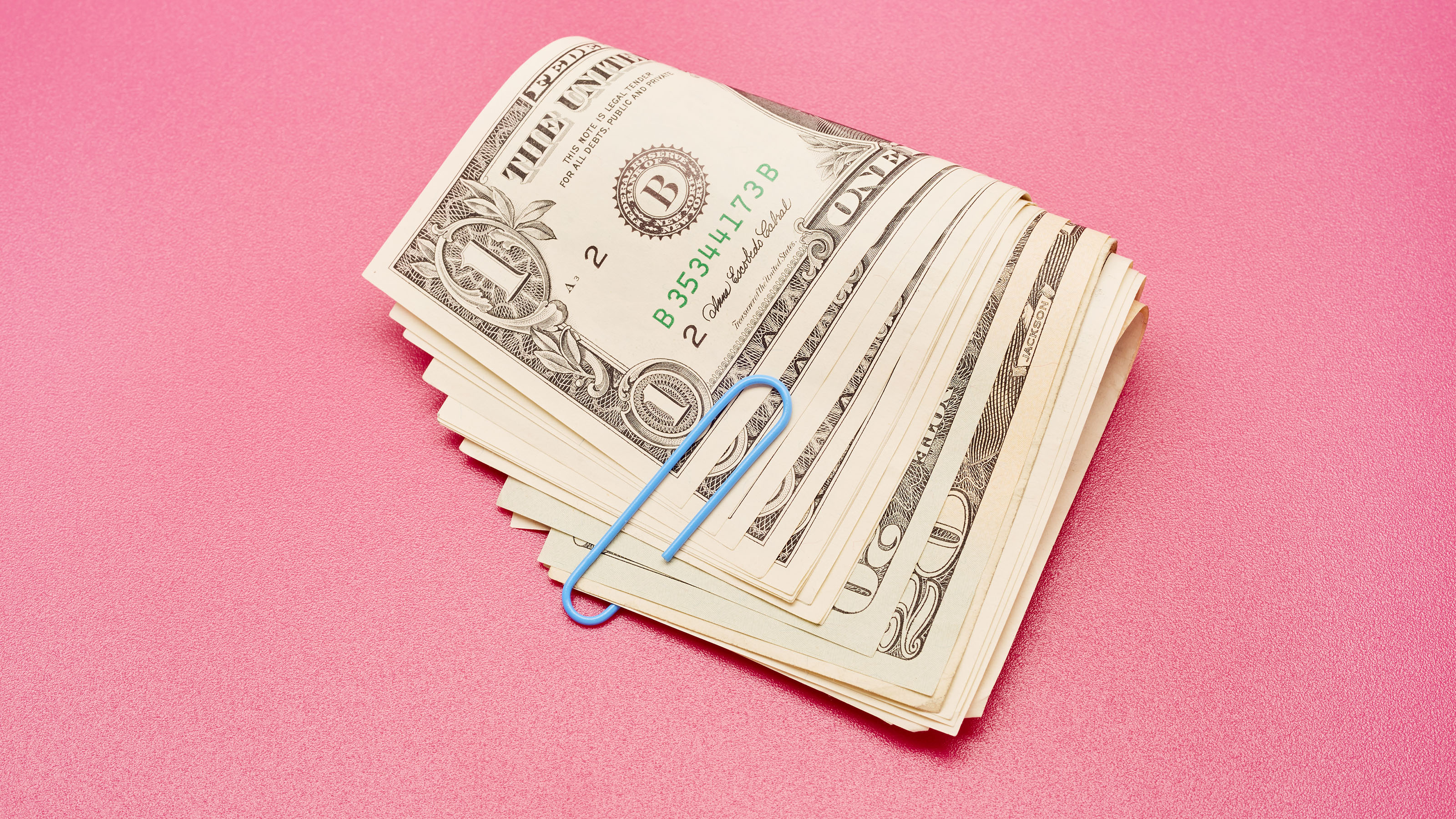Readers Share Tips for Raising Money Smart Kids
What's the right age for a child to have their own credit card? Opinions vary.


Profit and prosper with the best of Kiplinger's advice on investing, taxes, retirement, personal finance and much more. Delivered daily. Enter your email in the box and click Sign Me Up.
You are now subscribed
Your newsletter sign-up was successful
Want to add more newsletters?

Delivered daily
Kiplinger Today
Profit and prosper with the best of Kiplinger's advice on investing, taxes, retirement, personal finance and much more delivered daily. Smart money moves start here.

Sent five days a week
Kiplinger A Step Ahead
Get practical help to make better financial decisions in your everyday life, from spending to savings on top deals.

Delivered daily
Kiplinger Closing Bell
Get today's biggest financial and investing headlines delivered to your inbox every day the U.S. stock market is open.

Sent twice a week
Kiplinger Adviser Intel
Financial pros across the country share best practices and fresh tactics to preserve and grow your wealth.

Delivered weekly
Kiplinger Tax Tips
Trim your federal and state tax bills with practical tax-planning and tax-cutting strategies.

Sent twice a week
Kiplinger Retirement Tips
Your twice-a-week guide to planning and enjoying a financially secure and richly rewarding retirement

Sent bimonthly.
Kiplinger Adviser Angle
Insights for advisers, wealth managers and other financial professionals.

Sent twice a week
Kiplinger Investing Weekly
Your twice-a-week roundup of promising stocks, funds, companies and industries you should consider, ones you should avoid, and why.

Sent weekly for six weeks
Kiplinger Invest for Retirement
Your step-by-step six-part series on how to invest for retirement, from devising a successful strategy to exactly which investments to choose.
Making kids and young adults money savvy appears to be much on the minds of readers, judging by responses I’ve received to my columns on kids and money (What Kids Need to Know About Finances) and building financial confidence among women (Financial Planning and Investing: Women Closing the Confidence Gap).
For instance, Ramin Hashemi writes that when his two daughters were young, “I had a deal with them to double their money from babysitting and refereeing soccer games if they invested it. I would deposit the funds into a brokerage account and buy fairly low-risk stocks they could relate to.” Now in their late twenties, his daughters are both teachers who are “on top of their income, spending, investments and retirement plans.”
Reader Jeff Prouty recently was asked for financial advice by a 22-year-old friend of his daughter. Tops on his list: “Live below your means.”
From just $107.88 $24.99 for Kiplinger Personal Finance
Become a smarter, better informed investor. Subscribe from just $107.88 $24.99, plus get up to 4 Special Issues

Sign up for Kiplinger’s Free Newsletters
Profit and prosper with the best of expert advice on investing, taxes, retirement, personal finance and more - straight to your e-mail.
Profit and prosper with the best of expert advice - straight to your e-mail.
Steve Cline recalls that in the mid 1950s, his father gave him a 35-cent-per-week allowance and two pieces of advice: “Spend some, save some and give some to the church or to charity,” writes Cline. “Also, a dollar saved is better than a dollar earned because you don’t have to pay taxes.” By following that advice, says Cline, his parents “worked hard, raised five sons and lived a comfortable life.”
Credit card advice and more. A couple of readers questioned my advice on credit cards for young people.
“You note that kids shouldn’t get credit cards. But there’s a good reason to let them start early: establishing a credit history,” writes Theodore Wagenaar. “I added my then-16-year-old daughter on one of my credit cards. When she later got her own card, she already had a stellar credit history.”
Debbie and Jay Zimmer added their daughter to their credit card when she was in high school, with one condition: “She was required to pay us in full for anything she wanted to charge to the card,” writes Jay.
I understand this point of view, but I still prefer that young people wait to get a credit card until they are old enough to get one in their own name—usually 21—and pay the bills with their own money. Your personal experiences with credit may vary, but credit card companies were happy to issue my three children cards when they turned 21. Piggybacking on a parent’s credit history won’t do much good if young adults don’t have the self-discipline to rein in their spending when they get their own card.
If you really want to add a child to your account, at least follow the Zimmers’ example and require your child to pay for his or her purchases.
A couple of readers—Jamal Kazmi and Henry Barclay—requested recommendations for books on money and investing that would be appropriate for high school students. I’d suggest How to Turn $100 into $1,000,000, by James McKenna and Jeannine Glista, and The Motley Fool Investment Guide for Teens, by David and Tom Gardner.
Finally, Victoria L. has a plea for help. “I have tried to instill money management in my 16-year-old granddaughter, but to no avail. Her mother, my daughter, gives her whatever money she wants. I’m trying to find something that will pique her interest and make her realize that money’s not a freebie.”
Victoria, I’d suggest that you have your daughter read the advice in What Kids Need to Know About Finances. She’s not doing your granddaughter any favors, and it may help if she hears that from someone other than you.
You might also try a couple of the strategies suggested by readers. Like Ramin Hashemi, you could offer to double your granddaughter’s savings for something special she wants. Or you could purchase shares of stock in a company that appeals to her. That’s what Henry Barclay is planning to do for two granddaughters who will graduate from high school next year.
Profit and prosper with the best of Kiplinger's advice on investing, taxes, retirement, personal finance and much more. Delivered daily. Enter your email in the box and click Sign Me Up.

Janet Bodnar is editor-at-large of Kiplinger's Personal Finance, a position she assumed after retiring as editor of the magazine after eight years at the helm. She is a nationally recognized expert on the subjects of women and money, children's and family finances, and financial literacy. She is the author of two books, Money Smart Women and Raising Money Smart Kids. As editor-at-large, she writes two popular columns for Kiplinger, "Money Smart Women" and "Living in Retirement." Bodnar is a graduate of St. Bonaventure University and is a member of its Board of Trustees. She received her master's degree from Columbia University, where she was also a Knight-Bagehot Fellow in Business and Economics Journalism.
-
 The New Reality for Entertainment
The New Reality for EntertainmentThe Kiplinger Letter The entertainment industry is shifting as movie and TV companies face fierce competition, fight for attention and cope with artificial intelligence.
-
 Stocks Sink With Alphabet, Bitcoin: Stock Market Today
Stocks Sink With Alphabet, Bitcoin: Stock Market TodayA dismal round of jobs data did little to lift sentiment on Thursday.
-
 Betting on Super Bowl 2026? New IRS Tax Changes Could Cost You
Betting on Super Bowl 2026? New IRS Tax Changes Could Cost YouTaxable Income When Super Bowl LX hype fades, some fans may be surprised to learn that sports betting tax rules have shifted.
-
 Smart Strategies for Paying Your Child an Allowance
Smart Strategies for Paying Your Child an AllowanceBy giving your kids money to spend and save, you’ll help them sharpen their financial skills at an early age.
-
 My Four Pieces of Advice for Women Anxious About Handling Money
My Four Pieces of Advice for Women Anxious About Handling MoneyTalking about money can help you take control of your finances.
-
 What You Learn Becoming Your Mother's Financial Caregiver
What You Learn Becoming Your Mother's Financial CaregiverWriter and certified financial planner Beth Pinsker talks to Kiplinger about caring for her mother and her new book.
-
 How Women Can Turn a Gray Divorce Into a Financial Win
How Women Can Turn a Gray Divorce Into a Financial WinGetting divorced later in life can be a big financial blow, especially for women. But, as this financial adviser points out, it can also serve as a positive turning point for growth and independence.
-
 CVS Will Pay “Pink Tax” and Drop Prices on Period Products
CVS Will Pay “Pink Tax” and Drop Prices on Period ProductsCVS is taking a stand against the pink tax, tampon tax, and period poverty in twelve states where tampons and other menstrual products are more expensive.
-
 They Lost a Spouse but Bounced Back: 5 Women’s Financial Stories
They Lost a Spouse but Bounced Back: 5 Women’s Financial StoriesWomen & Money A look at how five widows got their financial lives in order and got to a better, brighter, more empowered place. They did it, and so can you.
-
 Reading, Writing, and Personal Finance
Reading, Writing, and Personal FinanceRaising Money-Smart Kids A growing number of high schools are adding personal finance to their curriculum.
-
 How Women Can Get What They Want (and Need) from a Financial Adviser
How Women Can Get What They Want (and Need) from a Financial AdviserWomen & Money Improving women’s experiences with financial professionals starts with honest conversations and some smart questions. And picking the right pro – one who knows how to listen – is critical.